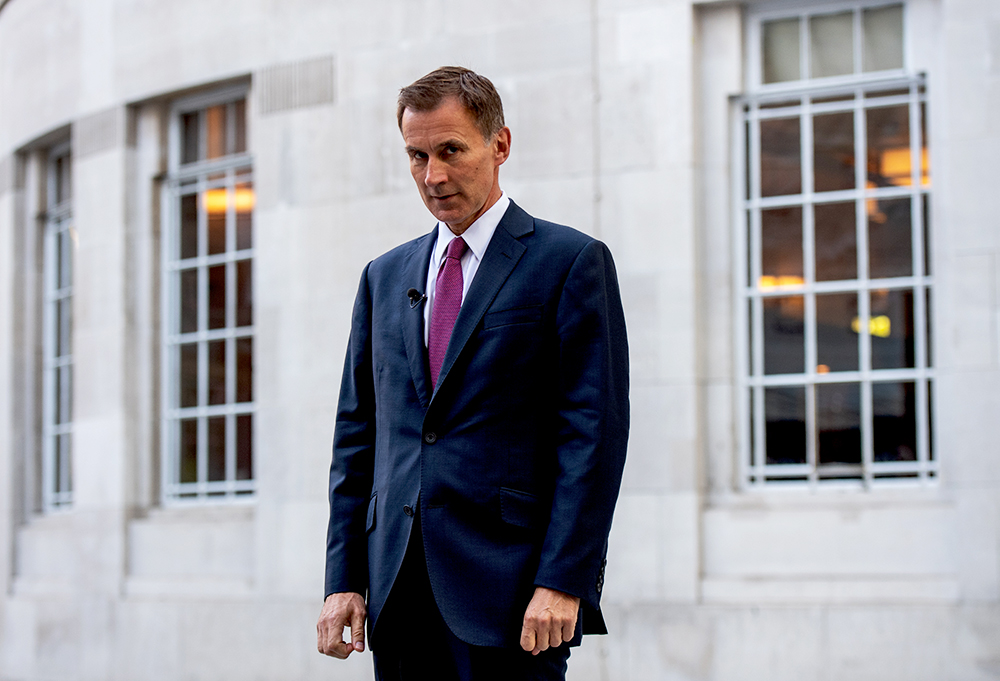
Yesterday’s was a quiet Budget, and a quietly ineffective one, as Freddie Hayward and Will Dunn have detailed. There were no Kwasi Kwarteng-style shocks, and not even any rabbits pulled from hats. But the Budget still told a story – the same stark story that every Budget has told for many years now. The story has four parts.
First, Conservative chancellors are happy to sacrifice stunning amounts of revenue to “protect” motorists (and satisfy the Sun). Fuel duty – the tax on petrol and diesel – has now been frozen for 13 years, and was even cut last year. The costs of that policy are staggering. As the Office for Budget Responsibility put it: “The cumulative cost of freezing fuel duty rates between 2010-11 and 2023-24 relative to increasing them in line with RPI inflation has risen to around £80bn, after factoring in the expected negative impact on demand for fuel from higher duty rates.”
Eighty billion! The UK will spend £77bn on the entire education budget this year. (And the freeze Hunt announced yesterday will continue to cost £2.5bn through to 2027-28.)
Second, Brexit was a bad idea. British voters already know that, by a margin of as much as two to one. But every Budget reminds us of its economic costs. Take a look at the chart below. Hunt announced measures yesterday to boost business investment (capital expensing), as Rishi Sunak did when chancellor before him (through the “super deduction”), but their policies amount to cosmetic changes against the backdrop of a catastrophic mistake. Without access to the EU single market, investing in Britain is far less desirable than it was.
[See also: Jeremy Hunt’s economic optimism will collide with voters’ realities]
Third, the rich and super-rich just keep getting away with it. One of Hunt’s major measures yesterday only exacerbated the problem. He scrapped the lifetime tax-free limit on pensions, which will hand a tax cut of tens of thousands of pounds to a tiny number of households. Meanwhile, non-dom status was protected, capital will continue to be taxed far more lightly than labour, and council tax – one of the most regressive taxes in Britain – remains unreformed.
The broader mood around yesterday’s Budget was less depressed than it might have been: inflation is set to collapse this year, from more than 10 per cent to 2.9 per cent, and it is set to do so without unemployment reaching 5 per cent. But the prospects of a Tory recovery seem dim: real household incomes are still set to fall by nearly 6 per cent over the next two years. While that is slightly better than forecast four months ago, it still represents “the largest two-year fall since records began in 1956-57”, notes the OBR. The UK is a net importer of energy and goods; living standards are falling because we are importing a level of inflation that’s greater than nominal pay growth. Real living standards will be lower in 2027-28 than in 2019-20.
Finally, the current dip in house prices looks more like a blip – prices will, on new forecasts, be as high in 2027 as they were in 2022. And Hunt did nothing yesterday to redress the fundamental unaffordability of houses in London or the south east.
[See also: The quiet consensus: how Labour and the Tories are converging]
Conservative chancellors may have been and gone, with Sunak now watching on as prime minister, but on the essential issues – fuel duty, Brexit, tax and house prices – the story remains the same.
Charts from the Office for Budget Responsibility
[See also: What does the Budget mean for levelling up?]







